
Enjoy a Smile Free of Discomfort with a Tooth Extraction Procedure
Thinking about a tooth extraction can feel daunting, but if a tooth is causing discomfort, it’s important to address it before it leads to other issues. Thanks to modern dental care, extractions are now relatively pain-free and won’t impact you much long-term, which means you’ll have your pain-free smile back in no time!
- Services
- >
- General Dentistry
- >
- Tooth Extraction

What Is Tooth Extraction?
A tooth extraction is a much more seamless procedure than it used to be. One of our expert dentists will loosen the tooth in its socket by using specialised dental instruments. Then, the tooth is gently extracted from the socket, ensuring no nerves are damaged.
People often consider getting a tooth extraction if they are feeling discomfort in a tooth and the surrounding gums. Discomfort may be heightened by chewing, pressure, or extreme temperatures.
There are various reasons that you may need a tooth extraction. The tooth causing discomfort may be decaying or infected, while in other cases the discomfort may stem from overcrowding. Dental damage caused by a sports injury or accident may be another reason to consider a tooth extraction.
There are two types of tooth extractions:
-
Simple Tooth Extraction: This is typically performed when a tooth is relatively healthy and accessible. Local anaesthesia is administered to numb the area around the tooth. The dentist then uses specialised instruments to gently loosen the tooth before carefully removing it. Sutures are usually not required, and the healing process is relatively swift.
-
Surgical Extraction: Surgery may be required where a tooth is damaged or not easily accessible. You may go under local or general anaesthesia. Then, your dental surgeon may make a small incision in the gum. This is to remove bone or tissue hindering the tooth extraction. In some cases, patients may require sutures to ensure full healing.
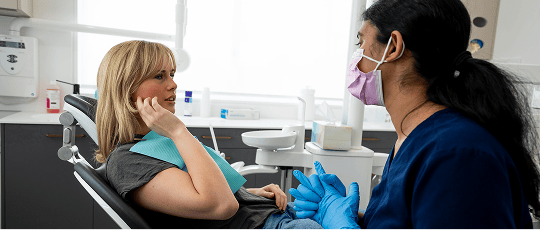
The Main Reasons for Getting a Tooth Extraction
Removing a tooth causing you discomfort will ultimately safeguard your smile and reduce the chances of complications down the track. There are a number of reasons you may need to have a problem tooth extracted.
When decay becomes advanced, it can compromise the tooth's structure and even impact the roots of other teeth. Extraction may be necessary to prevent the spread of infection and preserve the health of adjacent teeth.
Advanced gum disease can lead to the weakening of the supporting tissues around a tooth. If your tooth loosens, it is advisable to remove it so you can effectively treat the gum disease at the source.
Wisdom teeth, often the last to break through your gums, can become trapped near your jawbone. This is called ‘impaction’. Impacted wisdom teeth can cause discomfort, infection, or even structural damage to adjacent teeth, which is why many people opt for professional wisdom teeth removal to avoid future complications.
Sometimes more general dental issues, such as teeth crowding or a misaligned bite, can impact your level of comfort. With these orthodontic issues, teeth extraction can be the best solution. Being proactive with a single tooth extraction can reduce the risk of needing more damaged teeth removed in the future.
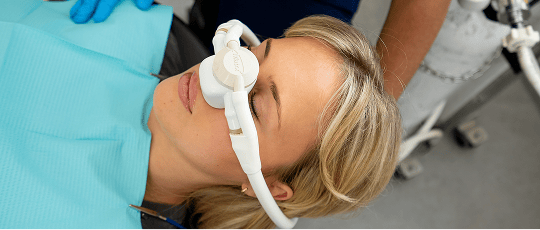
Our Tooth Extraction Treatment Procedure
Whether simple or surgical, tooth extraction is a delicate procedure. At Mulgrave Dental Group, our dental professionals are well-versed in this procedure. Our priority is ensuring that every step delivers the best standard of care and aims for the most comfortable experience possible.
Your journey to bringing back your best smile begins by assessing the tooth that may need extraction. An experienced dentist will first examine your overall oral health.
Based on the check-up, we'll discuss what type of tooth extraction is most suitable and how the procedure would be carried out. This ensures you can choose the treatment option most suitable for your needs.
Next, we'll book your tooth extraction. From the second you sit in the chair for your treatment, our skilled dental professionals will ensure you are comfortable. We will discuss the procedure step by step and talk about the anaesthesia that works for you. We want you to understand each detail of your treatment, to ensure you are satisfied with the results.
After your tooth extraction, we'll provide you with detailed aftercare instructions. This will help you maintain proper oral hygiene without triggering any discomfort or risking an infection. We may schedule follow-up appointments to check that you are healing on a suitable timeline. We can also discuss options for filling the gap left by the tooth extraction, such as with dental implants.
How to Prepare for your Tooth Extraction Treatment
As your appointment approaches, taking these simple steps can ensure you have the most comfortable experience possible. If you have any questions or concerns, please share them with our dental experts at any time.
Share Your Medical History
Maintain Open Communication
Follow Preparation Instructions
What is the Cost of Tooth Extraction Treatment?
Finance Options for your Tooth Extraction Treatment
We understand the importance of affordable care. That’s why we offer flexible financing to ensure you can access the best treatment – including getting dental implants to restore your original smile after your tooth extraction.
We work closely with Australia’s most comprehensive insurance providers, helping you access wider cover for your tooth extraction and professional aftercare.
We offer a range of flexible payment options. Here, you can spread out the cost of your procedure, re-paying in manageable instalments. Our team will work with you to create a personalised finance plan that aligns with your dental needs and budget.
Financing programs allow you to pay for your treatment when you need to through reputable third-party financing companies. With competitive rates and flexible repayment terms, it is much simpler to manage the cost of your tooth extraction.
You may be eligible to access superannuation funds early to cover essential dental treatments, which can include tooth extraction. Our team can offer guidance on this, connecting you to the necessary information and requirements to make this happen.
Tooth Extraction Treatment FAQs
It’s natural to have lots of questions about the tooth extraction procedure. In this section, we cover the most commonly asked concerns about getting a tooth extraction. Once you know exactly what to expect, it can help prepare you for treatment!
No, tooth extraction is typically performed under local anaesthesia. You may feel some pressure around your tooth but will remain comfortable throughout the procedure. After the extraction, some discomfort is normal, but it can be managed with over-the-counter pain relief. Your comfort is a priority, and the team at Mulgrave Dental Group is here to ensure your experience is seamless.
Our dentists will ensure discomfort during treatment is managed using sedation. This can include nitrous oxide for more minor procedures, or oral and IV sedation such as diazepam for complex cases. General anaesthesia may be recommended for surgical tooth extractions.
After your procedure, patients are often fine with simple pain relief such as aspirin. Your dentist can offer advice on stronger pain medication if you are experiencing more discomfort than normal.
The time it takes for treatment can vary depending on the complexity of the extraction and the tooth's condition. Simple extractions often take around 20-40 minutes. Surgical extractions may take longer and also involve preparation and a short post-recovery period. Your dentist will give a more accurate estimate based on your case during your consultation.
After a tooth extraction, it's normal to experience discomfort, swelling, and minor bleeding. These symptoms usually subside within a few days. Typically, healing occurs within 1-2 weeks. Simple extractions often have a quicker recovery, while surgical extractions might take a bit longer.
Your dentist may recommend pain relief measures and provide specific aftercare instructions. It's important to follow these measures, which can include avoiding certain foods and maintaining regular oral hygiene habits. At Mulgrave Dental Group, treatment doesn’t stop once you leave our office. We are only a call away if you need to discuss any issues.
In many cases, it’s recommended to replace a missing tooth to maintain proper chewing function, prevent shifting of adjacent teeth, and preserve your jawbone health. Your dentist can discuss options such as dental implants or bridges after your extraction.

How to Make Your Tooth Extraction Recovery Easier
Proper aftercare is vital for smooth healing after a tooth extraction. At Mulgrave Dental Group, we're dedicated to ensuring your well-being even after treatment is complete.
After a tooth extraction the site and your surrounding gums will be tender. Opt for soft foods such as mashed potatoes, yoghurt, and soups in the days after treatment. Steer clear of hot, spicy, and hard foods. You may also be sensitive to extreme temperatures, so avoid ice-cold drinks.
You need to keep up your fluids to maintain your overall well-being and speed up healing. Choose cool or lukewarm beverages, avoiding extreme temperatures, and don’t use straws as the sucking action can dislodge blood clots.
During recovery, continue to brush your teeth. Failure to maintain dental cleaning habits can increase the risk of infections. Don’t brush the extraction site and rinse your mouth with warm salt water after every meal to maintain cleanliness.
You can expect some swelling, discomfort, or minor bleeding in the first days after your treatment. Applying ice packs and gently biting on gauze can reduce swelling and control bleeding. You can also take over-the-counter pain relievers if recommended by your dentist.
Steering clear of tobacco is advised, as it can impede healing and heighten complications. Do not mix alcohol with pain medication either as this will also slow down the healing process.

Our clinic hours:
- Mon: 9 am - 6 pm
- Tue: 9 am - 7 pm
- Wed: 9 am - 7 pm
- Thu: 9 am - 7 pm
- Fri: 9 am - 5 pm
- Sat: Closed
- Sun: Closed
Any Questions?
Get clarity and confidence about your treatment options. We’re here to help.
At Mulgrave Dental Group, you’re our priority. We offer an array of modern dental services along with exceptional customer service in a warm, relaxed atmosphere. We have well over 50 years of collective experience, so please don’t hesitate to get in touch if you need us.
Contact us to schedule your consultation and take the first step towards a happier smile.
What Sets Mulgrave Dental Group Apart?
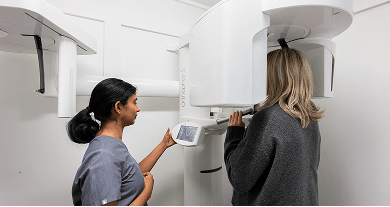
A Smoother, More Comfortable Experience
We use the latest technology and gentle techniques to make extractions smooth, stress-free, and virtually pain-free - helping you recover quickly and comfortably.
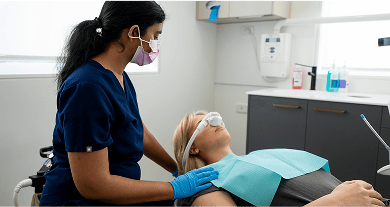
Supportive Care for Nervous Patients
We’re experts at helping anxious patients feel at ease. From aromatherapy and ceiling-mounted TVs to sleep dentistry options, we create a calming environment so you can relax and feel fully supported during your visit.
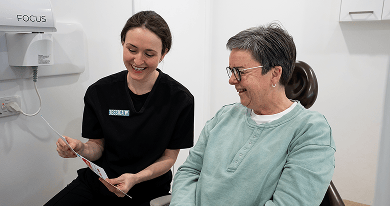
Personalised Aftercare for a Smooth Recovery
Your care doesn’t end when you leave the chair. We provide tailored aftercare instructions and follow-up support to ensure you heal comfortably and confidently.
Regain Your Best Smile with Our Help
When it comes to determining if you should get a tooth extraction, our dentists will ensure you make the best-informed decision. Don’t live with discomfort. Let Mulgrave Dental Group guide you to a solution that fixes any issues with your teeth and you are entirely satisfied with.How to Contact Us
Mulgrave Dental Group is located only 20 minutes from Melbourne CBD, just off Wellington Road. Come visit our office at 47 Wanda Street, Mulgrave, 3170 Victoria.
Call us on: 03 9562 5156
Email: reception@mulgravedentalgroup.com.au
Book a Tooth Extraction Consultation
Explore Alternatives to Tooth Extraction Treatment
Factors such as your dental history will affect whether a tooth extraction is best for you. Our team will help determine, from the first consultation, what the best course of action is. If a tooth extraction isn’t the most suitable treatment, we have other options to get you back to your pain-free best!

Dental Implants
Dental implants are artificial teeth which are surgically fused to your jaw bone, helping to replace a missing tooth with a brand new one that looks, and feels, the part.
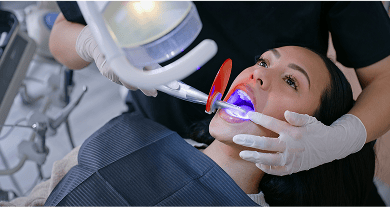
Dental Fillings
Dental fillings are a common treatment option for sealing cracks, treating decay and preventing sensitivity. Unlike crowns or veneers, which sit on top of the tooth, fillings go inside the cracks or holes, ‘filling’ them.

Root Canal Treatment
Root canal treatment can save natural teeth when tooth decay gets inside, down to the roots. It is a careful process which cleans the inside of a tooth, replacing the damaged pulp with a new, clean rubber-like material.